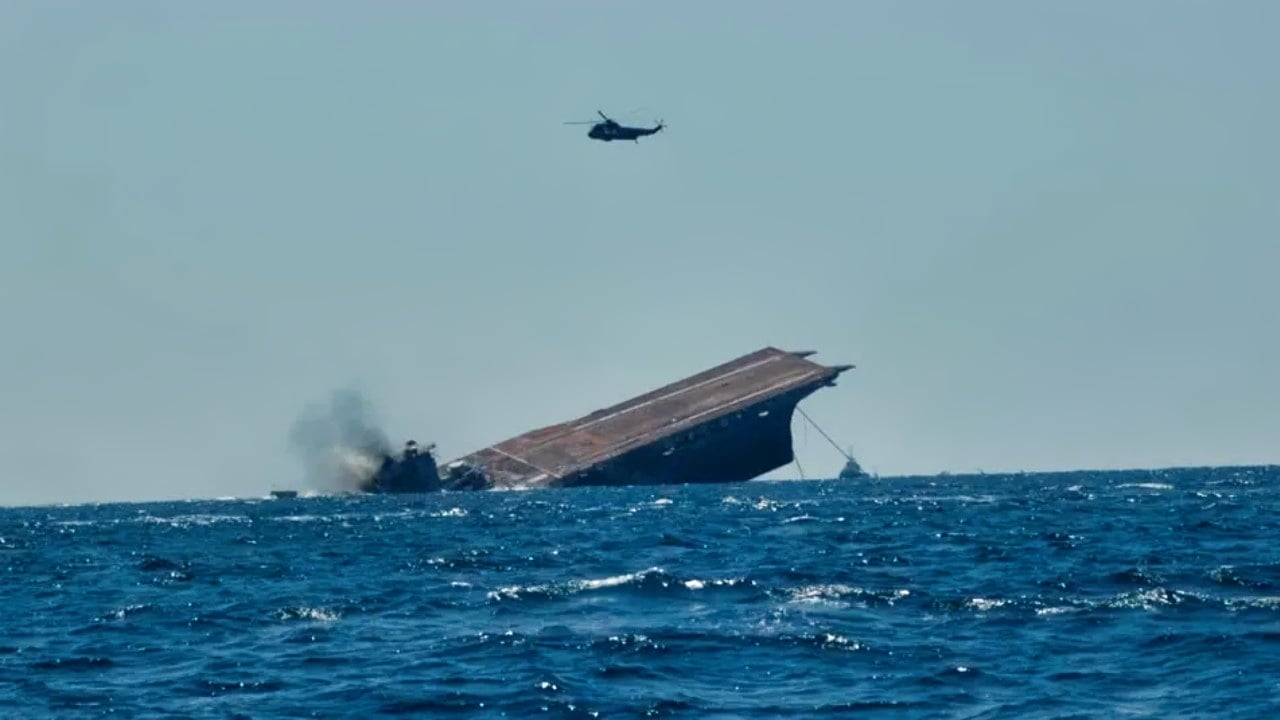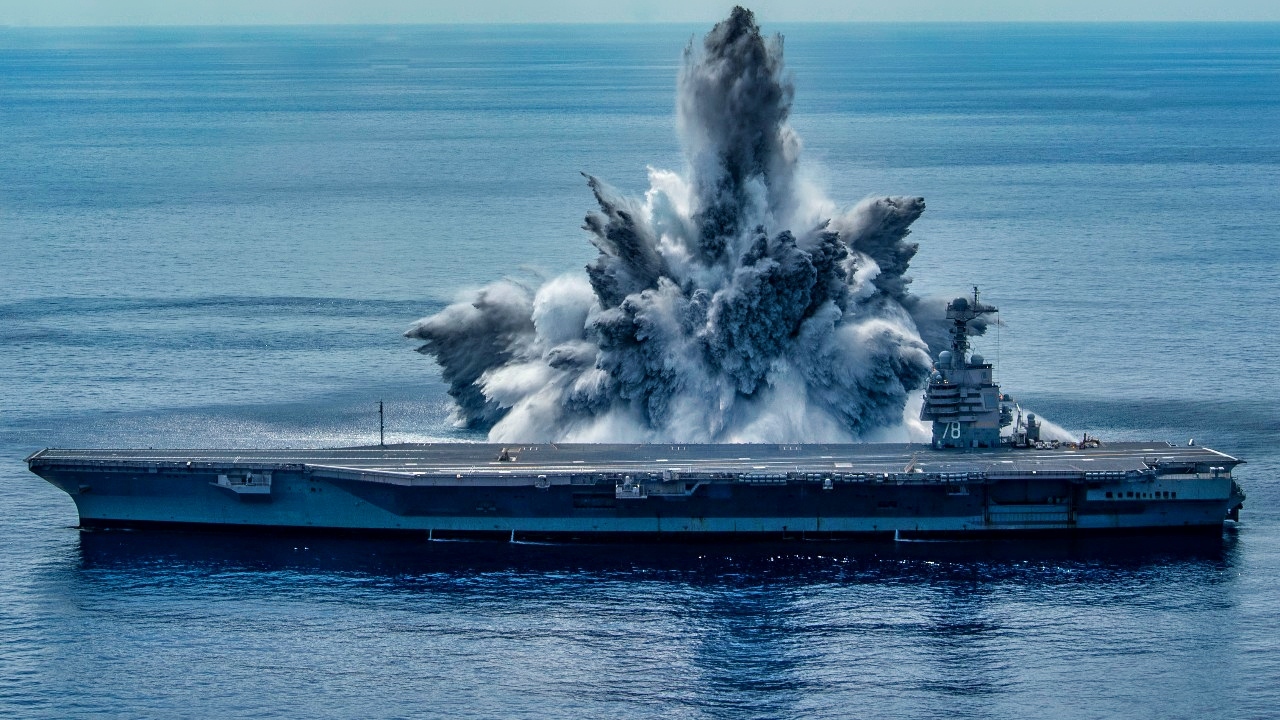
Aircraft Carriers: Nothing More Than A Missile Target Now?
What You Need to Know: The sinking of Russia’s Moskva cruiser by Ukrainian anti-ship missiles in 2022 sparked debate over aircraft carrier vulnerability. While anti-ship missiles pose a real threat, U.S. carriers operate with layered defenses provided by their strike groups, unlike the Moskva, which was largely undefended.

-In a conflict, peer adversaries like China could attempt to overwhelm a carrier’s defenses with missile salvos, but this theory remains untested.
-The U.S. Navy is adapting by expanding carrier aircraft ranges and developing new data-processing roles for carriers, suggesting that while they may evolve, carriers are unlikely to face obsolescence anytime soon.
Are Anti-Ship Missiles Really the End of Aircraft Carriers?
Since the Second World War, aircraft carriers have been the premier naval icon. Their ability to project power is unparalleled and they were viewed as virtually unsinkable. The past decade has seen many beginning to challenge that assumption as adversary nations have built up significant stocks of capable anti-ship missiles. This debate was vaulted into the limelight with the 2022 sinking of the Russian missile cruiser Moskva by the Armed Forces of Ukraine.
While this sinking is certainly a data point in favor of anti-ship missiles driving surface ships, including the mighty carrier, into obsolescence, there are several key differences between the Moskva sinking and any attack on a U.S. carrier.
Furthermore, while anti-ship missiles will no doubt reshape the nature of naval actions in future conflicts, they do not mean the end of aircraft carriers.
Moskva vs an Aircraft Carrier:
A few facts from the attack on the Moskva stand out when analyzing the effectiveness of anti-ship missiles: she was operating virtually alone, she did not fire any missiles or activate any countermeasures of her own, and she sank the following day.
When comparing this event against a potential attack against a U.S. carrier, these three assertions are illuminating. Aircraft carriers operate in strike groups with a multitude of air, surface, and sub-surface assets providing a layered defense of the principal ship.

The lack of any attempt to defeat the incoming threat could be due to mechanical malfunction such as flawed radar, sheer arrogance, or, more likely, insufficient training. This is bolstered by the fact that the Moskva sank the following day, allegedly when an ammunition magazine exploded.
Such knock on damage speaks to poor damage control, something that is a staple of training on U.S. vessels.
Aircraft Carrier Vulnerabilities:
Just because a U.S. carrier would likely have survived the attack that took down the Moskva does not mean they are without vulnerabilities.
Any conflict with a peer or near peer such as China would be a vastly different proposition. More likely, such an adversary would fire a massive salvo of missiles, hoping to overwhelm the defenses of the strike group and thus sink the carrier.
This proposition is not without merit, however, it can only be tested in a real conflict.
Even should it be proved to be correct, U.S. planners have taken that into account. While losing a carrier would be a huge blow, it is possible the U.S. could consider that acceptable losses as there would be ten others to fill the gap.

Additionally, while the exact status of China’s missile arsenal is unknown, precision guided munitions are difficult to make – Russia nearly depleted their arsenal after just over a year of conflict in Ukraine. If China were to use their stock on one or even two U.S. carriers, or if those carriers proved more resilient than expected, that would leave the U.S. able to execute carrier doctrine at will.
Changes and Advances:
Tactics and strategy are constantly evolving and there may indeed come a day when carriers are entirely obsolescent. For the moment, it seems they will remain relevant perhaps simply in different roles. The MQ-25 Stingray aerial refueling drone can increase the range of aircraft aboard the carrier helping it to stay farther from harm’s way.
Modern combat will doubtless involve massive amounts of data and information which will need to be parsed and acted upon, a carrier could provide the infrastructure for commanders to synthesize such streams and make decisions in real time. Such roles could keep carriers relevant for decades to come.
About the Author: Maya Carlin, Defense Expert
Maya Carlin, National Security Writer with The National Interest, is an analyst with the Center for Security Policy and a former Anna Sobol Levy Fellow at IDC Herzliya in Israel. She has by-lines in many publications, including The National Interest, Jerusalem Post, and Times of Israel. You can follow her on Twitter: @MayaCarlin.
Image Credit: Creative Commons.


